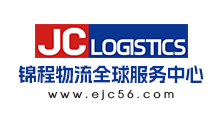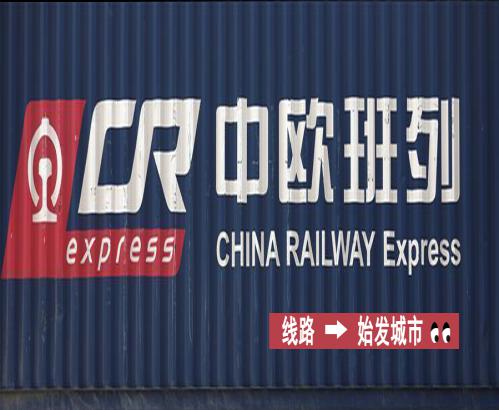Container shipping must join concerted 2050 clean-up effort
CONTAINER shipping is by far the most carbon efficient means of transporting goods across the world, but because more than 90% of the world’s traded goods are seaborne, the sector still has a major environmental impact.
As a result, IMO regulations to reduce sulphur content in fuels from 3.5% to 0.5% took effect at the beginning of 2020.
However, with the world still in the grip of a global pandemic, shipping companies need to reassess the measures they have in place to meet compliance and determine the best way through the pandemic and beyond.
The Covid-19 impact
One of the primary concerns of IMO 2020 — the availability of compliant low-sulphur fuels — has diminished because the world’s air and surface transportation has come to a near standstill as part of the impact of the pandemic. Container shipping has benefited from an increased supply of low-sulphur feedstocks and can probably expect relatively cheap low-sulphur fuel for at least the next year.
The abundance of low-sulphur fuel and accompanying price plunge has greatly reduced the incentive to buy scrubbers, allowing some shipowners to delay their installation plans. In that sense, the pandemic has given the industry more time to adapt to the IMO 2020 specifications.
As a responsible container shipping business, Ocean Network Express (ONE) has recognised the importance of minimising its environmental impact to ensure its operations remain sustainable in the long term. Like other ocean carriers, ONE has examined the potential requirements to comply with the new regulations:
- I Convert to low-sulphur compliant fuels;
- II Exhaust gas scrubber installations;
- III Switch to liquefied natural gas (LNG) which contains low or zero sulphur.
As at January 1, 2020, ONE had reached compliance with the new emission limits and continues to review where it can further reduce its impact on the environment and operate in a sustainable manner.
A step in the right direction, but more needs to be done
The sulphur cap only tackles one pollutant and does not address other sources of pollution such as particulates, nitrogen oxide or carbon dioxide emissions. More needs to be done in order to meet the IMO’s 2050 target of reducing shipping’s total annual GHG emissions by at least 50% compared to 2008. That would align shipping with the Paris Climate Agreement’s temperature goal, which seeks to limit global warming.
Climate change is a major risk factor for shipping. An ambitious target for shipping’s emissions reduction is a strong driver to meet the challenge of such risk. To that end, ONE is intending to cut its CO2 emissions (in gram/teu-km) by 25% by 2030 and then to 50% by 2050, from a 2018 baseline.
Decarbonisation of maritime transport can also be approached by other means. For instance, existing technology could improve the efficiency in construction and operation of vessels. Operational measures, such as improving terminal operation efficiency or micro-management of voyages, could also help. Renewable energies such as biofuels or electricity from wind and solar power can accelerate the journey towards carbon neutrality.
A concerted effort is needed to drive sustainable change
Cleaning up global shipping is a mammoth task that can only be achieved through the concerted efforts of all stakeholders in the global supply chain. Businesses must do their part to comply with environmental regulations, looking beyond short-term profits to prioritise long-term sustainable business growth.
ONE recognises that growth and sustainability are not in conflict. Moreover, ONE believes it is in the alliance’s best business interest to ensure it has a strong environmental management system in place. ‘Business as usual’ is no longer an option, as the longevity and profitability of ONE now depend on a proactive approach to sustainability. Policy makers, shipping authorities and businesses must work collaboratively to deliver transformative technology and solutions that will lead to a more sustainable industry.
- Geodis buys US freight broker Velocity Transport
- Box cargo shifts to bulk vessels to find affordable capacity
- Maersk resumes Yantian calls as nearby ports remain under pressure
- New system launched for first- and last-mile cargo tracking for forwarders
- Egypt agrees to release Ever Given from Suez Canal
- Culina buys Eddie Stobart owner GreenWhiteStar
-
1
达飞轮船公告
WAX航线MAERSK ENSHI轮422W(0WWI5W1MA)航次开航及相关操作时间调整通知(UP2)...
-
2
国货航将上市,未来三大航和快递...
又一家航空物流企业国货航即将在A股上市,南航物流IPO申请也获受理,加上之前已经上市...
-
3
达飞轮船公告
CHINA 1航线XIN YAN TAI轮247S(1QAGUS1NC)航次开航及相关操作时间调整通知...
-
4
东方海外公告
5177- 我司部分航次挂靠码头调整
-
5
达飞轮船公告
PHEX航线CMA CGM LOIRE轮0BEI7W(0BEI7W1MA)航次开航及相关操作时间调整通知...
-
6
马士基航运公告
月25日,马士基官网发布通知,修订(调升)远东亚洲(不包括中国台湾)至南美洲东海岸所...
-
7
胖东来应该大胆做电商生意
爆火的生意,让胖东来2024年的业绩爆表,远超预期。据媒体报道,截至2024年11月26日,...
-
8
达飞轮船公告
CV2航线AS PAMELA轮066W(0IGRTW1NC)航次开航及相关操作时间调整通知...
-
9
马士基航运公告
10月16日,马士基发布更新公告,目前往返以色列的预订继续被接受。然而,对于危...
-
10
马士基航运公告
5月5日,丹麦航运巨头马士基在官网发布了通知,关于土耳其与以色列暂停贸易相关进出口...

